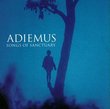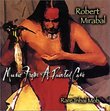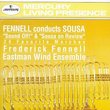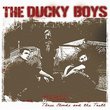| All Artists: Ensemble Organum, Lycourgos Angelopoulos Title: Chants de la Cathedrale de Benevento /Ensemble Organum * Peres Members Wishing: 2 Total Copies: 0 Label: Harmonia Mundi Fr. Release Date: 12/7/1993 Album Type: Import Genres: Classical, Christian & Gospel Styles: Opera & Classical Vocal, Historical Periods, Early Music, Pop & Contemporary Number of Discs: 1 SwapaCD Credits: 1 UPCs: 093046147624, 3149025060235 |
Search - Ensemble Organum, Lycourgos Angelopoulos :: Chants de la Cathedrale de Benevento /Ensemble Organum * Peres
 | Ensemble Organum, Lycourgos Angelopoulos Chants de la Cathedrale de Benevento /Ensemble Organum * Peres Genres: Classical, Christian & Gospel
|
CD DetailsSimilarly Requested CDs
|
CD ReviewsReview (from Gramophone) Slobberer | Astoria, NY United States | 01/26/2009 (5 out of 5 stars) "Holy Week and Easter at Benevento Cathedral Ensemble Organum / Marcel Peres. Harmonia Mundi © HMC90 1476 (73 minutes: DDD: 12/94). Texts and translations included. Recorded 1993. Beneventan Chant: Adoration of the Cross. Paschal Vigil. Easter Sunday Mass of the Day. This is a recording of exceptional interest. Beneventan chant represents an area of early liturgical music about which, until recently, little has been generally known, and which has been almost entirely overshadowed by Gregorian chant. To a large extent, in past centuries, Benevento and its surrounds were geographically cut off from both Roman and Carolingian influence. Many Greek monastic communities had previously taken refuge and settled in Southern Italy. It was normal that the inhabitants of Benevento should have contacts with these communities and that they should establish cultural and political links with Greece itself. It is hardly surprising to find that the Latin rite of the Cathedral of Benevento contains substantial traces of Greek influence and numerous bilingual texts. The liturgy of Holy Week is a case in point, in particular the Adoration of the Cross: each antiphon is heard first in Greek and then in Latin, followed by Latin psalmody to slight variations of the more familiar Gregorian psalm tones. Some of this music, of purely Beneventan origin, is of quite extraordinary beauty. The responsory Amicus meus (sung by Josep Benet and Marcel Peres) is one such piece, and for which alone one would wish to possess this recording. Ensemble Organum's normal recourse to a style of singing inspired by Greek Orthodoxy really comes into its own here: the choice seems entirely fitting for a repertoire such as this. The singers are to be congratulated on such a splendid result, the fruit of their study with Lycourcos Angelopoulos. The ornamentation is sounding more natural, the ison well controlled. Professor Thomas Kelly's concise and informative notes are an excellent introduction to the music. " Greek Chant from Lombard Italy Giordano Bruno | Wherever I am, I am. | 12/02/2008 (5 out of 5 stars) "The simple fact that a Lombard kingdom existed in southern Italy during the so-called "Dark Ages" may well surprise many people. That it outlasted the Lombard sovereignty of Milan, surviving until overmastered by the Normans expanding from Sicily, may surprise even more. Given the location of its capital in the city of Benevento, well south of Rome, it shouldn't surprise anyone that the southern Lombards were in close cultural and economic contact with "Byzantium" - the Eastern Roman Empire - which still controlled the heel of the boot of Italy.
The liturgy and liturgical chant of Benevento was based on the models of the Milanese St. Ambrose. Both Milan and Benevento resisted the imposition of Gregorian chant long after it became dominant elsewhere. Marcel Peres maintains, however, that Beneventan chant diverged thoroughly from its Milanese source, absorbing much more influence from its Greek/Byzantine neighbors. The reconstruction on this CD of the Pascal liturgies as they might have sounded in Benevento in the 7th Century is based on that still-controversial assumption. The celebrant is in fact a specialist in Greek Orthodox chant, Lycourgos Angelopoulos, backed up by the regular voices of Peres's Ensemble Organum. Marcel Peres is as polarizing a figure amongst musicologists and chant-specialists as Milton Friedman is among economists. No question, this is a highly speculative recreation of music so far removed in time and culture that even the echoes have died from the stones. I find it fascinating." |

 Track Listings (14) - Disc #1
Track Listings (14) - Disc #1





